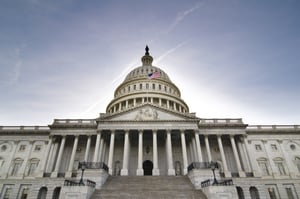
Speculation abounds related to whether Congress will try to rescind recent regulations issued by the U.S. Department of Education (USED) and other agencies. The Congressional Review Act (CRA) allows for Congress to do just that, but the CRA only allows for one regulation to be addressed at a time.
An indicator that Congress is considering invoking the CRA to rescind regulations is the January 3rd passage of an amendment to the CRA by the U.S. House of Representatives. The Midnight Rule Relief Act is an amendment to the CRA that would allow Congress to rescind groups of regulations that were finalized in the past 60 days (fyi, that’s 60 congressional working day, not calendar days), rather than one regulation at a time. The bill needs to be passed in the Senate and then would need the President’s signature. If the Senate considers the bill, it is clear that they will delay until they can get a presidential signature from now President-elect Donald Trump.
Some of the regulations that Congress is reportedly considering rescinding include:
- Accountability Regulations;
- Teacher Preparation Regulations;
- School Nutrition Regulations;
- Guidance on Transgender Students; and
- If finalized, the Title I Supplement not Supplant Regulations
Of these, if rescinded, the Accountability Regulations would probably have the greatest impact on schools and districts. This is because state plan submission dates and school improvement determination deadlines have already been changed twice, and rescinding accountability regulations could muddy the waters even more. This would also impact parent notices related to school improvement and school report cards because there are requirements related to these outlined in those regulations.
In addition, it is important to note that if the CRA is invoked to rescind an Elementary and Secondary Education Act (ESEA) as amended by ESSA regulation, no new regulations on that topic may be issued until there is another reauthorization of the ESEA. That could make both states’ and the USED’s job much more complicated and difficult.
There may be other rules targeted by Congress, but it is unclear at this time which others might be considered. If you have any questions or would like more information, please contact us at 425.977.2100, Option 3 or email at support@transact.com.




